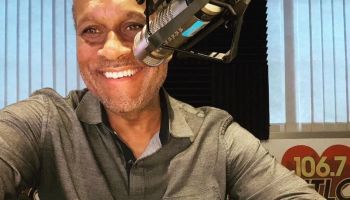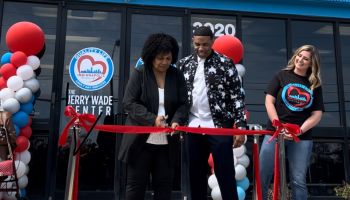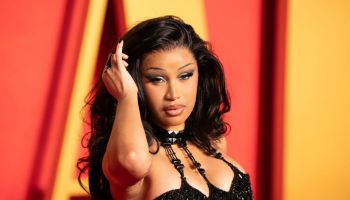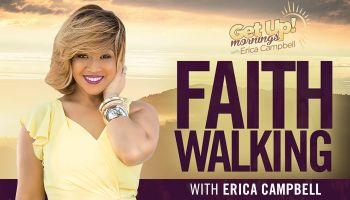Via: Wikipedia.com
Funk is a music genre that originated in the mid-late 1960s
when African American musicians blended soul music, jazz and R&B into a
rhythmic, danceable new form of music. Funk de-emphasizes melody and harmony
and brings a strong rhythmic groove of electric bass and drums to the
foreground. Funk songs are often based on an extended vamp on a single chord,
distinguishing it from R&B and soul songs centered on chord progressions.
Like much African-inspired music, funk typically consists of
a complex groove with rhythm instruments such as electric guitar, electric
bass, Hammond organ, and drums playing interlocking rhythms. Funk bands
sometimes have a horn section of several saxophones, trumpets, and in some
cases, a trombone, which plays rhythmic “hits”.
Many of the most famous bands in the genre also played disco
and soul extensively. Funk music was a major influence on the development of
disco music and afrobeat, and funk samples have been used extensively in genres
including hip hop, house music and drum and bass. It is also the main influence
of go-go, a subgenre associated with funk.
The music was slow, sexy, loose, riff-oriented and
danceable. Funky typically described these qualities rather than a distinct
genre. In early jam sessions, musicians would encourage one another to
“get down” by telling one another, “Now, put some stank on
it!”. It is possible that the word funk was derived from a blend of the
Kikongo term lu-Fuki (preserved by the African American community) and the
English term stank and stinky. At least as early as 1907, jazz songs carried
titles such as “Funky Butt”, a piece by Buddy Bolden.[5] As late as
the 1950s and early 1960s, when “funk” and “funky” were
used increasingly in the context of Soul music, the terms still were considered
indelicate and inappropriate for use in polite company. According to one
source, New Orleans-born drummer Earl Palmer “was the first to use the
word ‘funky’ to explain to other musicians that their music should be made more
syncopated and danceable.”
James Brown was one of the first to bring funk to the
forefront. He developed his own style of using the downbeat, with heavy
emphasis on the first beat of every measure to etch his distinctive sound,
rather than the backbeat that typified African American music.
Then there was Sly and the Family Stone and the Isley Brothers
Then George Clinton had his rock- funk with his bands with
his bands Parliament and, later, Funkadelic. Together, they produced a new kind
of funk sound heavily influenced by jazz and psychedelic rock. The two groups
had members in common and often are referred to collectively as
“Parliament-Funkadelic.
The 1970s were the era of highest mainstream visibility for
funk music. In addition to Parliament Funkadelic, artists like Sly and the
Family Stone, Rufus & Chaka Khan, the Isley Brothers, Ohio Players,
Labelle, Confunkshun, Kool & The Gang, The Bar-Kays, Commodores, Roy Ayers,
among others, were successful in getting radio play.
Disco music owed a great deal to funk. Many early disco
songs and performers came directly from funk-oriented backgrounds. Some disco
music hits, such as all of Barry White’s hits, “Kung Fu Fighting” by
Biddu and Carl Douglas, Donna Summer’s “Love To Love You Baby”, Diana
Ross’s “Love Hangover”, KC & The Sunshine Band’s “I’m Your
Boogie Man”, “I’m Every Woman” by Chaka Khan (also known as The
Queen of Funk Soul), and Chic’s “Le Freak” conspicuously include riffs
and rhythms derived from funk. In 1976, Rose Royce scored a #1 hit with a
purely dance-funk record, “Car Wash”. Even with the arrival of Disco,
funk became increasingly popular well the early 80s.
Rick James was
the first funk musician of the 1980s to assume the funk mantle dominated by
P-Funk in the 1970s.
Then you had
Prince with his “Minneapolis sound”, hybrid mixture of funk, R&B,
rock, pop & New Wave.
Which led to the
Time and groups like Cameo, Zapp, The
Gap Band, The Bar-Kays, and The Dazz Band who all found their biggest hits in
the early 1980s.
Funk has also been incorporated into modern Urban Pop &
R&B music by many female singers such as Beyoncé Knowles with her 2003 hit
“Crazy In Love” (which samples The Chi-Lites’ “Are You My
Woman”), Jennifer Lopez in 2005 with Get Right (which samples Maceo
Parker’s “Soul Power ’74” horn sound), and also Amerie with her song
1 Thing (The Meters’ “Oh, Calcutta!”).















